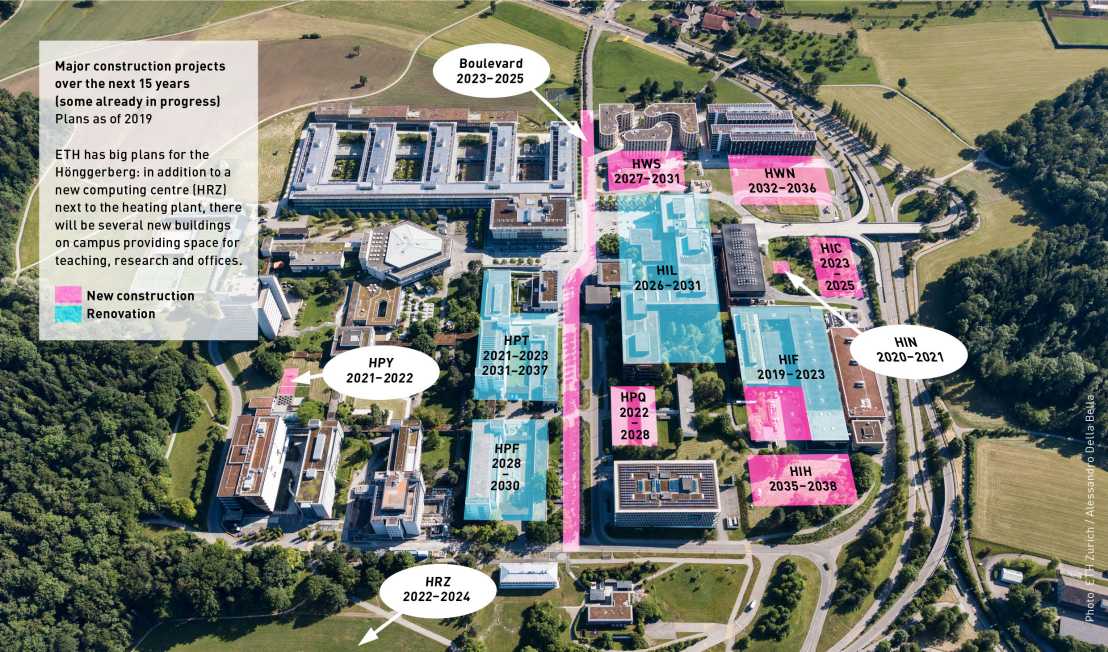
(
Graphic image
: ETH Zurich / gestalten AG)
The Hönggerberg campus is central to ETH’s plans to develop its spaces and real estate: while development options are limited on the Zentrum campus due to the historical structures of the district and city, ETH still has land available for new buildings on the Hönggerberg. Between now and 2040, the university wants to increase the total volume of its buildings by 50 percent.
Before ETH can implement these construction projects, the Zurich Municipal Council will have to approve special new building regulations. There is currently a limit to how much ETH is allowed to build – and the next new-build project, the HPQ physics building, will more or less take it up to the limit.
The vision for the Hönggerberg is to make it an attractive campus with the feel of a city district, combining the teaching and research buildings with public spaces, gardens and a busy boulevard featuring cafés and shops. Four new buildings along the boulevard (Wolfgang-Pauli-Strasse) will create space for a new park and the expansion of the Flora Ruchat-Roncati garden.
In the future, the campus will be a place where students and researchers from different disciplines come together to exchange ideas, as well as a place for socialising and leisure activities, where guests and local residents are welcomed. The university aims to create a high-quality urban area through these measures.
Department and Executive Board member to move to Hönggerberg
ETH is focusing its development in Zurich on the two main sites: the Zentrum campus and the Hönggerberg campus. At other sites, the university is forming thematic clusters in order to improve collaboration and the joint use of technology platforms and infrastructures – in Basel (systems biology) and Lugano (supercomputing), for example.
Furthermore, ETH is planning to gradually stop using small, uneconomical properties, as well as former living spaces that are currently used as offices.
In the medium term, the development of the Hönggerberg will create space for another department on this campus: “Which department is going to move will be discussed in great detail – and some substantial new buildings will be required,” explains Weidmann. There is also talk of a member of the Executive Board moving to the Hönggerberg in future.
Weidmann himself and his Executive Board domain are moving to the newly leased Octavo building in Oerlikon at the end of 2020: “Teaching, research and knowledge transfer should be prioritised when it comes to using the limited space on the Zentrum campus.”
As the construction of new buildings is not currently able to keep up with demand, the university is having to lease a number of large buildings until around the end of the next decade – with the aim of gradually phasing these out again once it has built enough of its own buildings.
“Unfortunately at the moment we cannot fulfil everyone’s demands and we are not able to offer all users their first choice of location,” says Bucheli. The Department of Computer Science (D-INFK), for example – which is growing significantly in size – will soon be allocated premises in Oerlikon as there are no suitable spaces available to rent on the Zentrum campus in the short term.